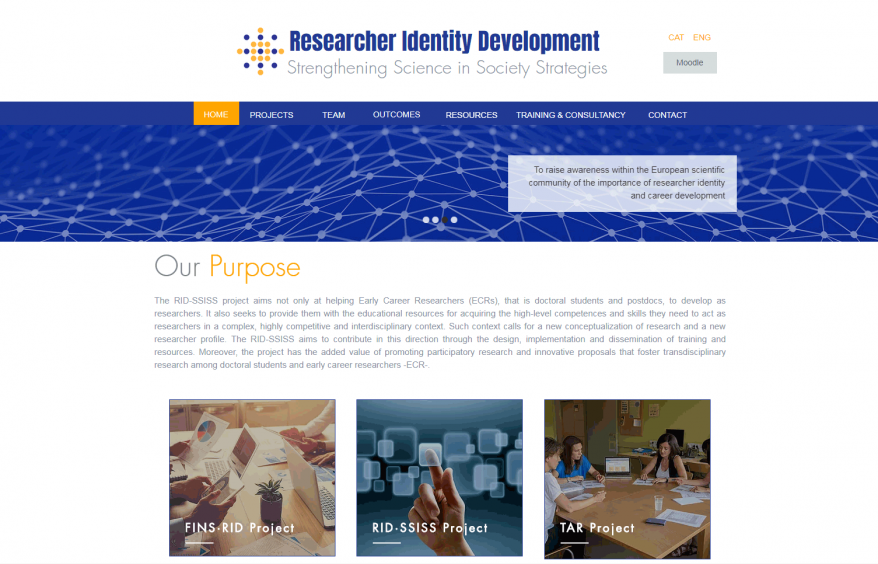Eurodoc holds a role of an associated partner in the project of the acronym RID-SSISS which aims first at helping Early Career Researchers (ECRs), that is doctoral candidates and postdocs, to develop as researchers and successfully face current societal challenges and establish satisfactory careers. The project also seeks to provide them with the educational resources for acquiring the high-level competencies and skills they need to act as researchers in a complex, highly competitive and interdisciplinary context. Such context calls for a new conceptualization of research and a new researcher profile.
The RID-SSISS aims to contribute in this direction through the design, implementation and dissemination of training and resources. The specific objectives are:
- To design, implement and assess interactive online research-based resources to help ECRs face challenges concerning: interaction with supervisors, teams and communities of reference; scientific writing and production; inequity and ethics of research, and strategies for developing resilience and regulating emotions.
- To develop, validate and set up digital tools that contribute to developing ECRs identity and career trajectories through effective participation in the professional and scientific communities of reference.
- To raise awareness within the European scientific community of the importance of researcher identity and career development through the presence of these digital tools.
- To showcase and disseminate proven methodologies, tools and practices for ECRs to successfully address challenges faced in advancing their careers.
Apart from ECRs the RID-SSISS project is clearly targeted to other groups’ needs:
- Supervisors and other teachers and trainers.
- Higher Education institutions and educational stakeholders (doctoral school directors, graduate program directors).
- Research funding agencies and policymakers.
To develop effective and innovative training proposals, materials and modules for ECRs, we need to train highly qualified teachers and trainers engaged in doctoral education. Training will not only help them implement these innovative approaches and proposals but also to modify their own perception of what researcher education means and how it needs to be changed to make a new researcher profile possible at the European level. Moreover, higher education institutions and other stakeholders can benefit from the outputs of the project to plan doctoral programs and courses in their institutions.
The project involves the following universities: Blanquerna — Universitat Ramon Llull (project leaders; principal investigator: Dr. Montserrat Castelló Badia), Lancaster University, Oulu University and Tallinn University, including European organizations operating in the area of higher education and science (League of European Research Universities, European University Association, SIG-REaC Researcher Education and Careers, Eurodoc and others). In order to get more information about the project, it’s associated previous projects and recent outcomes, please visit the project website: LINK.
The project is co-funded by the Erasmus+ programme of the European Union. Project reference: 2017-1-ES01-KA203-038303.
Ewelina Pabjańczyk-Wlazło — President of Polish Association of Doctoral Candidates and Eurodoc representative in the project
Source: www.researcher-identity.com

